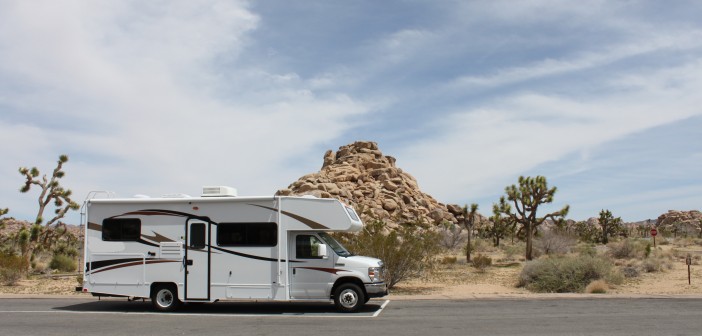Originally Posted by Thor Motor Coach on January 05, 2016
If you are just getting introduced to camping in the great outdoors and the world of recreational vehicles, chances are, you are hearing a lot about various classes of RVs or motorhomes. For those who are looking to invest in their first RV these classifications can become a cause for much confusion.
Remember that RVs require a substantial investment which means that you cannot risk buying one that does not really match your needs. To avoid costly mistakes in this respect, we compiled all you need to know about different motorhome classes right here. So read on and determine the right motorhome class to invest on.
You may be aware that there are three main motorhome classes to choose from when it comes to motorhomes for sale, Class A, B and C.
Class A Motorhomes
Does your ideal motorhome closely resemble a transit bus? Then you’re probably looking for a Class A Motorhome, which is the largest and most luxurious option among all three classes of RVs.
Class A RVs come with the classic, picture window windshield, which lets you enjoy a full panoramic view of the outdoors as you drive down or set-up camp. The price tag of these mammoth vehicles can run into the millions if you decide to include all of the luxurious features and options offered by the manufacturer, but can sometimes be found new for less than $200k.
To give you an idea of exactly what you can expect with these luxury motorhomes, just imagine a top end, fully furnished manor in an exclusive location and add wheels to it. In effect, you can get pretty much any feature you want included in your Class A RV. The most impressive features of a typical one are:
- Impressive length, which leaves you plenty of interior room for a good number of family members or friends. Usually, these RVs come with a separate master suite at the rear end complete with enclosed bathroom and shower.
- Multiple slide outs, some expanding over a dozen feet to give you a lot of extra space right where you need it
- One or more large flat screen HDTVs, and excellent sound systems, are all very common in these luxury RVs
- Impressive basement storage space, which lets you stow all the stuff you want to keep with, but might not need to use right away
- A king or queen sized bed
Added options and upgrades are a big advantage of these high end motorhomes. Class A Motorhomes do come with a larger price tag and they can get somewhat unmaneuverable if you need to pack up and drive away quickly to make good time on your road trip. Fuel expenses should also be a consideration. Class A’s do require a bit more road-handling than smaller motorhomes. However, the absolute luxury that these vehicles offer make up for any of the possible drawbacks.
…If you’re looking for a unique RV or if you’re thinking about selling your home and RVing full-time, then going for the Class A model is the best thing you could do.
Class C Motorhomes
The Class C RV is the mid- segment RV, which is usually built on a van or truck chassis. These vehicles come with an attached cab (unlike Class B RVs) and they offer a host of features, amenities and upgrade options that you will not find with smaller models.
The Class C RV may be a bit too long for the conventional garage but you do not take up too much space in open parking lots or on camp grounds. These are some things to expect from a Class C motorhome for sale:
- A more powerful engine than your typical Class B vehicle
- A compact but well appointed dining area and kitchen
- Built- in stove, refrigerator, water/ propane storage tank
- Entertainment systems, including one or more HD LED TV and outdoor entertainment systems and, sometimes, outdoor kitchens
- Enough storage space for a small family’s belongings
- Entry doors on both sides of the cab, providing easier access (this is opposed to Class A RVs, which may not have driver’s side access)
- A king or queen sized bed
- A dedicated eating and living area
- A full bathroom with a shower
Class B Motorhomes
Class B Motorhomes are the smallest of the lot. However, these tiny houses still have every amenity you’ll need on the road. The biggest and most significant difference between Class B Motorhomes and Class C Motorhomes is that these lack the cab over portion, whcih you will find in the other, larger Class C RVs.
Class B RVs are built on a cargo van or camper van chassis (as the base vehicle) although they have a higher roof so that you can stand comfortably inside.
Expect to find the following in a typical Class B motorhome for sale:
- A compact kitchen with basic necessities
- A small living space and full bath
- Sound system and HD LED TV
- A queen sized bed
- Class B RV generally have excellent mileage, which means that your RVing lifestyle is really easy on the wallet. Their compact size and easy maneuverability allow you to drive down to remote locations that may be inaccessible to the larger motorhomes. Since they occupy very limited space, you can park them practically anywhere as long as there is a regular parking lot or in a large garage. If necessary, you can simply use your Class B RV as your family vehicle too.
Diesel or Gas option
When you talk about making the right choice in shopping for your RV, it is also necessary to think about the type of fuel the vehicle uses. Class A RVs, which tend to use the most fuel, are the ones in the spotlight in this respect. Thankfully, you have a choice between gas powered and diesel powered models. Factor in these points when you are trying to decide which type of fuel you want your RV to run on:
Fuel efficiency is another key aspect to think about particularly because it does impact your running costs significantly. A diesel motorhome is more fuel efficient because the fuel itself has greater energy density. Diesel gives you 10% better fuel economy every single time you fill the tank. Keep in mind that motorhomes come with powerful engines, which typically consume fuel at an incredible rate. Even if diesel gets more expensive, you may still be saving money in the long run because of the better fuel efficiency it offers. For those who intend to go out on road trips frequently or those who want to live out of their motorhome, diesel may be the more economical choice. If you intend to use the RV occasionally, a gas engine should work fine for you.
In gas powered RVs, the engine is mounted in the front. In the winter, this is a good thing because the engine keeps the driver’s space warmer but in summer, this can work against you. Plus, the front mounted engine makes more noise, which can be enhanced when you are accelerating or climbing.
The diesel engine is mounted in the rear, which means your driver’s space is quiet and calm. However, the generator is usually mounted up front in these models.
Another point to consider is the fill- up time. Diesel is usually the winner here because it takes less time to get your tank filled. Gas pumps tend to take a much longer time. However, newer diesel powered vehicles need DEF (Diesel Exhaust Fluid) in a separate tank and this can be rather difficult to locate in an unfamiliar neighborhood. It is also quite expensive, making this an aspect where the gas powered engine scores because it does not require this additional fluid. – Keep in mind you don’t need DEF every time you fill-up.
A gas powered vehicle is generally easier to do the maintenance for as long as there are no major repairs or replacements needed. You can do the simple things like oil change or brakes or fuel filler on your own. With a diesel model, DIY maintenance is generally not easy or advisable. In addition, parts for your gas RV are more easily available than those for your diesel powered one and the service rates for the former are lower than what you would pay to get your diesel RV serviced.




